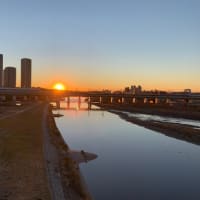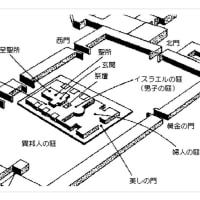30章 エジプトと同盟国への裁き(30:1-19)
1.エジプトの同盟国への裁き
29章に続き、エジプトに関する二つの預言が語られています。日付のない三番目の預言(1-19)と第11年の第1の月の7日(BC587年4月)と日付が付された四番目の預言(20-26)です。四番目の預言は、一番目の預言(29:1)の3ヶ月後なので、おそらく三番目の預言はその間に語られたものと思われます。そしてこの預言は、ツロに対する預言が語られた時期と重なっているようです(26:1)。
そこでまず三番目の預言を見てまいりますが、3節、その中心主題は「主の日」の到来にあります。その日、神がエジプトとその同盟国を裁き、富とその神々を根こそぎにされることを伝えています。4節、5節、9節に出てくる「クシュ」という地名はエチオピアのことです。「プテ」はエジプトの西の地中海沿岸の地、「ルデ」は小アジヤのルデヤのことです。「あらゆる混血の民」というのは、エジプトに寄留する外国の諸民族(エレミヤ25:20)のことでしょう。「クブ」(5節)は、いったいどの国に当たるのか不明です。ともあれ、ここで言われていることは、エジプトのみならず、これらエジプトの同盟国も共に裁きを受けることです。
次に12節から、エジプトの主要都市の名があげられ、それらが主に裁かれると伝えられます。まずエジプトの経済基盤であり、生命線であるナイル川に神の手が下ります。13節の「メンフィス」は、下エジプトの首都として栄えた都市で、以前の新改訳第三版では、「ノフ」と訳されていました。14節「パテロス」は、上エジプトのアスワンからカイロに広がる地域。「ツォアン」は、ナイル川のデルタ地帯東部の主要な町タニスのことです。「テーベ」はエジプトの長い歴史の中で、度々首都とされてきた都市で、欄外注を見るとわかるようにヘブル語の原文では「ノ」となっています。新改訳の第三版では文字通り「ノ」と訳していましたが、新改訳2017になってからテーベに修正されました。エジプトの南端の町で、現代のカルナックとルクソールに当たると考えられています。15節「シン」は、エジプトの北東部、地中海沿岸にある要塞の町です。テーベとシンが組み合わされて語られているところ、どうやら神の裁きは、南の端から北の端までエジプト全土に神の裁きが及ぶと言いたいのでしょう。17節「オン」は、ギリシャ語の七十人訳聖書では「ヘリオポリス」となっており、もしそうならばエジプト最古の太陽神の町です。しかし、新改訳2017ではそのように解釈はしていません。欄外中を見ると、ヘブル語の原語は「アベン」だとわかります。まだ当時の場所がわかっていない地名なのでしょう。「ピ・ベセテ」は現代のバスタ、カイロの北東にある町で、その名の意味は、「猫の像を模した偶像の町」いずれも、異教的な町です。最後のタフパンヘスは、エジプト北東部の交通の要所です。すべてエジプトの主要都市で、エジプトにある主要都市のほとんどがネブカドネツァルに攻撃される。同盟国が滅ぼされる時に、と言うわけです。
2.わたしの剣を渡す
四番目の預言(20-26節)がなされた前年、つまりBC587年4月の前年、ファラオ・ホフラは、ゼデキヤの要請に応えて、エルサレムを救援しようとしました。そこでバビロン軍は一度退却しています。しかし、再び来襲、エジプト軍を撃退するのです。その後ファラオはエジプトの内戦で暗殺され、エジプトは弱体化し、バビロン軍に侵略されてしまうのです。25節、エゼキエルは「バビロンの腕を強くし、ファラオの腕を垂れさがるようにする」と神のことばを伝えましたが、それがまさに成就する結果となりました。
大切なのは、25節、神がご自分の剣をバビロンの王に渡すとした点でしょう。歴史が動くのは、力ある人の働きによるものではありません。人に剣を渡し、力を与えられる神がいるためです。神を信じるというのは、単純に信心深くなることではありません。表向きはそう見えるかもしれませんが、実際は、社会や歴史を動かす神を認められるようになることなのです。聖書の「聖」をひじりと読むのは、聖人とは非を知る(ひじり)人なればこそとも言われます。人間が自分の限界や非、無能さを認め、謙虚になって、神を仰ぐ、それがひじり、聖人というわけです。確かにいかに優れた人であれ、人の力などたかがしていれることでしょう。人に剣を渡し勢いを与えられる神がおられる、しかしその神は同時に愛と誠実な神であると信頼して生きることが神を信じることなのです。では今日も良き一日となるように祈ります。
<クイズコーナー>
最初に、昨日のクイズです。エジプト全土を言い表すことばとして、適切なものはどれでしょうか?①ミグドルからセベネ、②ダンからベエル・シェバ、③北海道から沖縄。答えは①ミグドルからセベネ、クシュでした。ちなみに②ダンからベエル・シェバはイスラエル全土を言い表すことばです。では、今日の聖書クイズです。次の中でエジプト南部の都市はどれになるでしょうか?①テーベ、②メンフィス、③シン。答えは、また明日。では今日も良き一日となるように祈ります。
Chapter 30: Judgment on Egypt and Its Allies (30:1-19)
1. judgment on Egypt and its allies
Following chapter 29, two prophecies concerning Egypt are mentioned. The third prophecy is undated (1-19), and the fourth prophecy is dated to the seventh day of the first month of the eleventh year (April 587 BC) (20-26). Since the fourth prophecy is three months after the first (29:1), the third prophecy was probably spoken during that time. And this prophecy seems to coincide with the prophecy against Tyre (26:1).
We will now turn to the third prophecy, verse 3, the central theme of which is the coming of the "Day of the Lord. The place name "Cush" in verses 4, 5, and 9 refers to Ethiopia. Ptah" is a place on the Mediterranean coast west of Egypt, and "Rude" is Rudea, in Lesser Aziah. The "people of all the mixtures" may refer to the foreign tribes sojourning in Egypt (Jeremiah 25:20). It is unclear to which nation "Kub" (v. 5) refers. At any rate, what is being said here is that not only Egypt but also these allies of Egypt will be judged together.
Next, beginning with verse 12, the major cities of Egypt are named and told that they will be judged by the Lord. In verse 13, "Memphis," the capital of Lower Egypt, was translated as "Nof" in the Shinkai-yaku Version. Zoan" refers to Tanis, a major town in the eastern Nile River delta. Thebes" is a city that has been frequently made the capital of Egypt throughout its long history, and as can be seen from the notes outside the column, the original Hebrew text has "No." The third edition of the New Revised Version translated it literally as "No," but this was corrected to Thebes in the New Revised 2017. Thebes is a town at the southern tip of Egypt, thought to be the modern-day Karnak and Luxor; verse 15, "Sin," is a fortified town on the Mediterranean coast in northeastern Egypt. Where Thebes and Sin are mentioned in combination, it is apparently intended to say that God's judgment will extend over all of Egypt, from the southern end to the northern end; verse 17, "On," is "Heliopolis" in the Greek Septuagint, and if so, it is the oldest city of the sun god in Egypt. However, the New Revised 2017 does not interpret it that way. If you look inside the column, you will see that the original Hebrew word is "Aven". It is probably the name of a place whose location at the time is not yet known. Pi Betheth is modern-day Basta, a town northeast of Cairo, whose name means "city of idols in the image of cats," both of which are pagan in nature. Finally, Tahpanhes is the transportation hub of northeastern Egypt. All are major cities in Egypt, and most of the major cities in Egypt are attacked by Nebuchadnezzar. So when our allies are destroyed, we say.
2. hand over my sword
The year before the fourth prophecy (vv. 20-26) was made, i.e., the year before April 587 BC, Pharaoh Hophra attempted to rescue Jerusalem in response to Zedekiah's request. So the Babylonian army retreated once. However, they came again and defeated the Egyptian army. Pharaoh was then assassinated in Egypt's civil war, and Egypt was weakened and invaded by the Babylonian army. In verse 25, Ezekiel delivered the word of God that "the arm of Babylon shall be strengthened, and the arm of Pharaoh shall be made to hang down," and this is exactly what happens.
Perhaps the important point is verse 25, where God states that He will give His sword to the king of Babylon. It is not by the work of powerful men that history is set in motion. It is because there is a God who gives swords to men and gives them power. To believe in God is not simply to be religious. It may appear that way on the surface, but in reality it is about being able to recognize the God who moves society and history. It is said that the reason why the word "holy" in the Bible is read as "hijiri" in Japanese is because a saint is a person who knows what is wrong (hi means wrong and jiri means know, it’s a kind of wordpray). When a person recognizes his or her limitations, inadequacies, and incompetence, humbles himself or herself, and looks up to God, that is what a hijiri, or saint, is. It is true that no matter how good a person is, his or her power is limited. To believe in God is to live trusting that there is a God who can give strength to men by passing a sword to them, but that God is also a God of love and sincerity. I wish you a good day today.
<Quiz Corner
First, yesterday's quiz. Which word is appropriate to describe all of Egypt? (1) Migdol to Sebene, (2) Dan to Beersheba, (3) Hokkaido to Okinawa. The answers were (1) Migdol to Sebene and Kush. Incidentally, (2) Dan to Beersheba is a word that describes all of Israel. Now, here is today's Bible quiz. Which of the following cities is located in southern Egypt? (1) Thebes, (2) Memphis, and (3) Sin. The answer will be given tomorrow. I wish you a good day today.



















